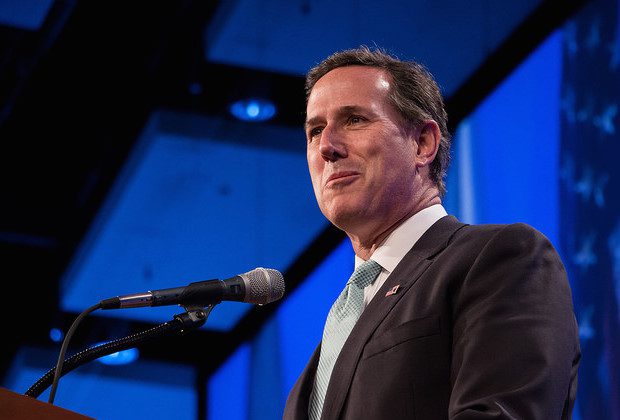The GOP’s Debate Conundrum (III)

Dan Schnur endorsed Santorum’s solution to the party’s debate conundrum:
Mr. Santorum–who has more than a small amount of self-interest in this matter–has the right idea. Rather than relying on polling results to prematurely rank the candidates and create a self-reinforcing hierarchy for the front-runners, he suggests instead selecting participants in each of the two forums at random. That way, both groups receive a similar amount of public and media attention. And even if candidates do not share the stage with all of their rivals, there will be enough ideological and personal diversity in each group to give the audience a sense of the contenders.
Selecting participants at random has the virtue of mixing up the supposed “top-tier” candidates with the rest of the field, and it doesn’t arbitrarily exclude any candidate from consideration. It’s not a bad compromise under the circumstances, but that doesn’t mean that it should be adopted. It overlooks the main problem with the ever-growing GOP field, which is that roughly half of the candidates are running entirely pointless campaigns. That is, half of the field is creating a glut of candidates that doesn’t need to exist and which serves no real purpose. The most obvious contributors to the glut are the clear no-hopers (e.g., Carson, Fiorina, Graham, Pataki) and the also-rans from previous cycles with weak or abysmal poll numbers, such as Huckabee and Santorum. The former have no realistic chance of gaining traction, and the latter have had their chances in the past and clearly aren’t drawing much support the second time around. The debates won’t suffer from their absence, and the party isn’t missing out on any arguments that any of these candidates would make. Primary debates are already usually mind-numbing displays of ideological conformity, so there is nothing to be gained by including so many more candidates to recite the same lines on every issue.
Noah Rothman suggests that the networks hosting the debates should do what the candidates have refused to do:
If Republican presidential hopefuls won’t do as John Bolton did – soberly survey the political landscape, determine that you have no hope of winning the nomination and little to add to the discourse, and humbly bow out – then the networks should do it for them. Moving forward, networks that plan to host a GOP debate should narrow the prospective participants to no more than eight based on the present polling average.
That would at the very least make the debates less tedious affairs, and it might even allow enough time so that the candidates wouldn’t all be repeating canned talking points all night. This wouldn’t make the debates very informative, but it might prevent them from being completely useless.
Comments